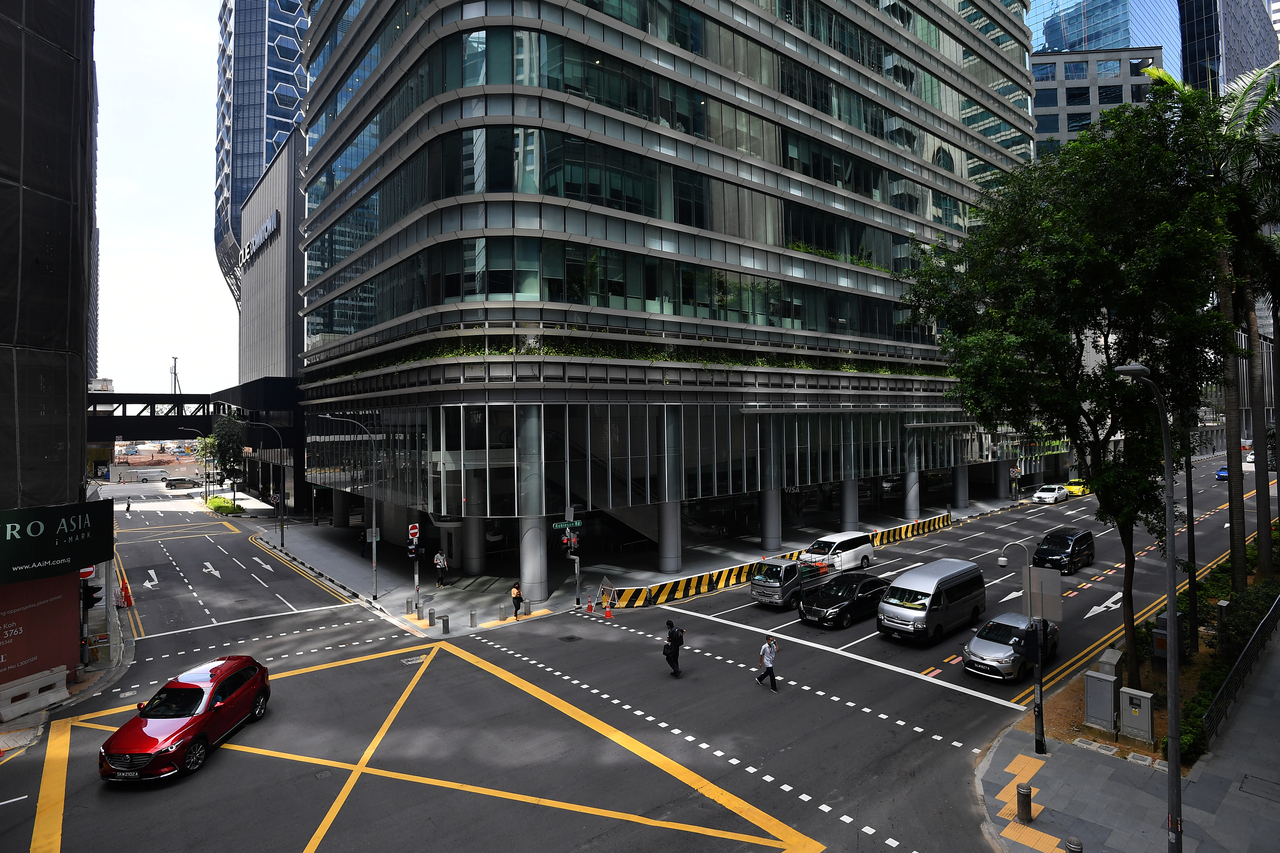Free programme to help S'pore employees adopt sustainable practices in the workplace
Sign up now: Get ST's newsletters delivered to your inbox

Building users are typically responsible for almost half the total electricity consumption in office and retail buildings.
ST PHOTO: LIM YAOHUI
SINGAPORE - Running washing machines at full load instead of the usual half load. Taking the stairs instead of the lift.
These are among 30 day-to-day behavioural changes that employees at Swissotel Merchant Court Singapore have made since 2017, helping the hotel to achieve 4 per cent energy savings a year.
Companies and individuals who wish to learn how to identify potential energy-saving areas in their workplaces and to engage their peers on green issues can now tap a new free sustainability programme, said National Development Minister Desmond Lee on Thursday (Aug 5).
Practising sustainable behaviour within building premises is important as building users are typically responsible for almost half the total electricity consumption in office and retail buildings, said Mr Lee in his keynote address at the inaugural virtual Green Real Estate Trends Conference 2021.
Called Sustainability in Singapore (SiS), the programme offers a standardised step-by-step training curriculum where participants learn to design a sustainability campaign through virtual workshops, live-stream sessions and meetings.
Participants can also contact experts for advice and coaching sessions in their own time.
The aim is to empower individuals sharing the same premises within an organisation with the skills and knowledge to make practical changes so as to achieve energy savings goals and improve their general well-being.
SiS first started as a two-year pilot programme to test if tangible sustainability outcomes could be achieved from changing the behaviour of building users.
Swissotel Merchant Court Singapore was among 12 companies that participated in the pilot programme.
Through 12 sustainability campaigns implemented by the companies, the pilot programme achieved on average energy savings of 180,000 kilowatt hour - enough to power approximately 450 four-room Housing Board flats for a month.
The SiS programme is curated by the Building and Construction Authority (BCA) and Singapore Green Building Council (SGBC), together with Global Action Plan, a charity organisation that specialises in sustainable behavioural change.
On Thursday, Mr Lee also announced that BCA's Green Mark scheme will be refreshed to place greater emphasis on the reduction of embodied carbon in buildings, in line with the Government's push towards sustainable construction practices.
"For instance, developers are encouraged to assess and reduce the embodied carbon emissions of their projects not just at the construction stage, but also while the building is in operation and at the end of its lifespan" he said.
Embodied carbon refers to the carbon or energy consumed through the production of materials used for construction and during the construction process itself.
In today's building design and construction, 28 per cent of carbon emitted in buildings is embodied carbon while the remaining 72 per cent is operational carbon - the carbon used throughout the building's lifespan.
The enhanced scheme will be launched later this year.
At the virtual conference on Thursday, it was announced that close to 60 organisations in the built environment sector had pledged to minimise embodied carbon in their buildings. The conference was co-organised by SGBC and the Real Estate Developers' Association of Singapore.
SGBC's board technical lead Allen Ang said the push to reduce operational carbon, which typically comes from electricity consumption, is already imbued in the sector through green building master plans.
The next step is to look at reducing embodied carbon, which requires the commitment of each player in the supply chain in any building project.
Explained Mr Ang: "Unlike operational carbon emissions, embodied carbon emissions… cannot be improved over the lifetime of a building. Once the project is completed, the embodied carbon is locked in and is irreversible."


